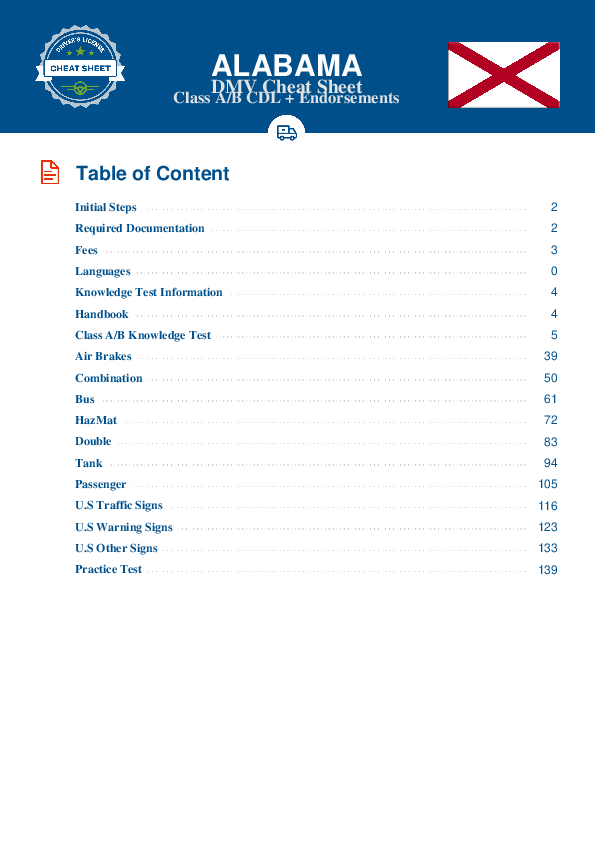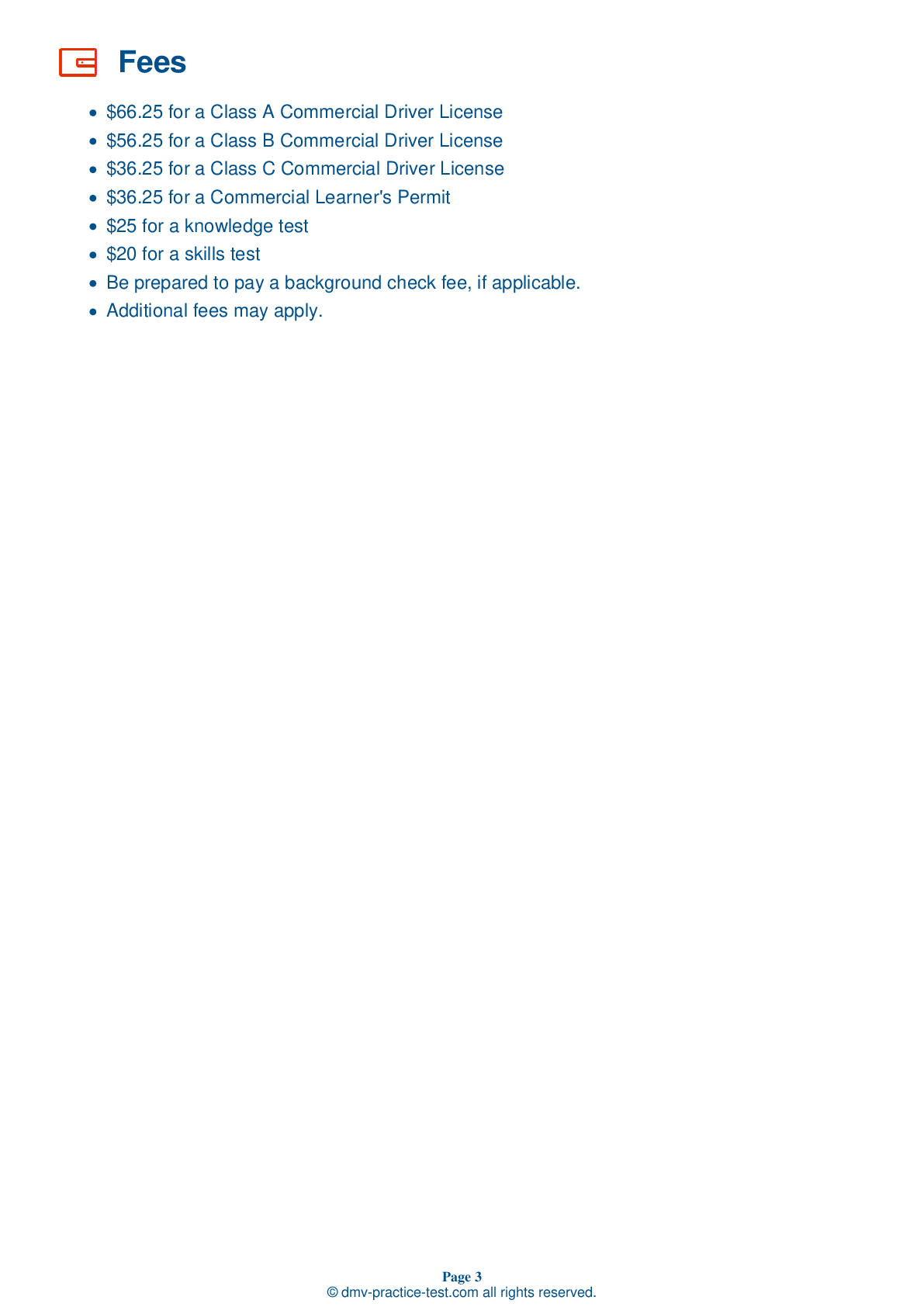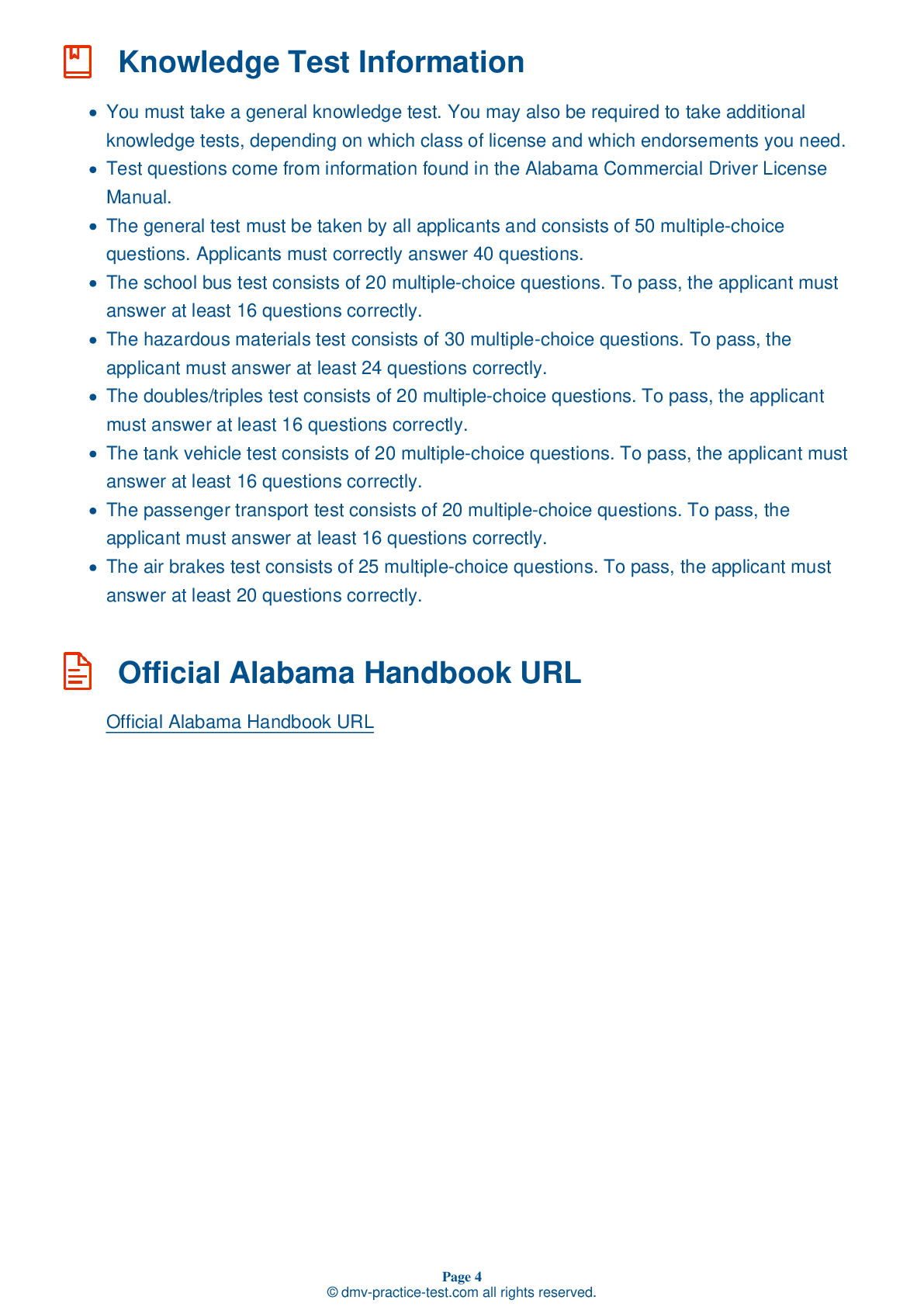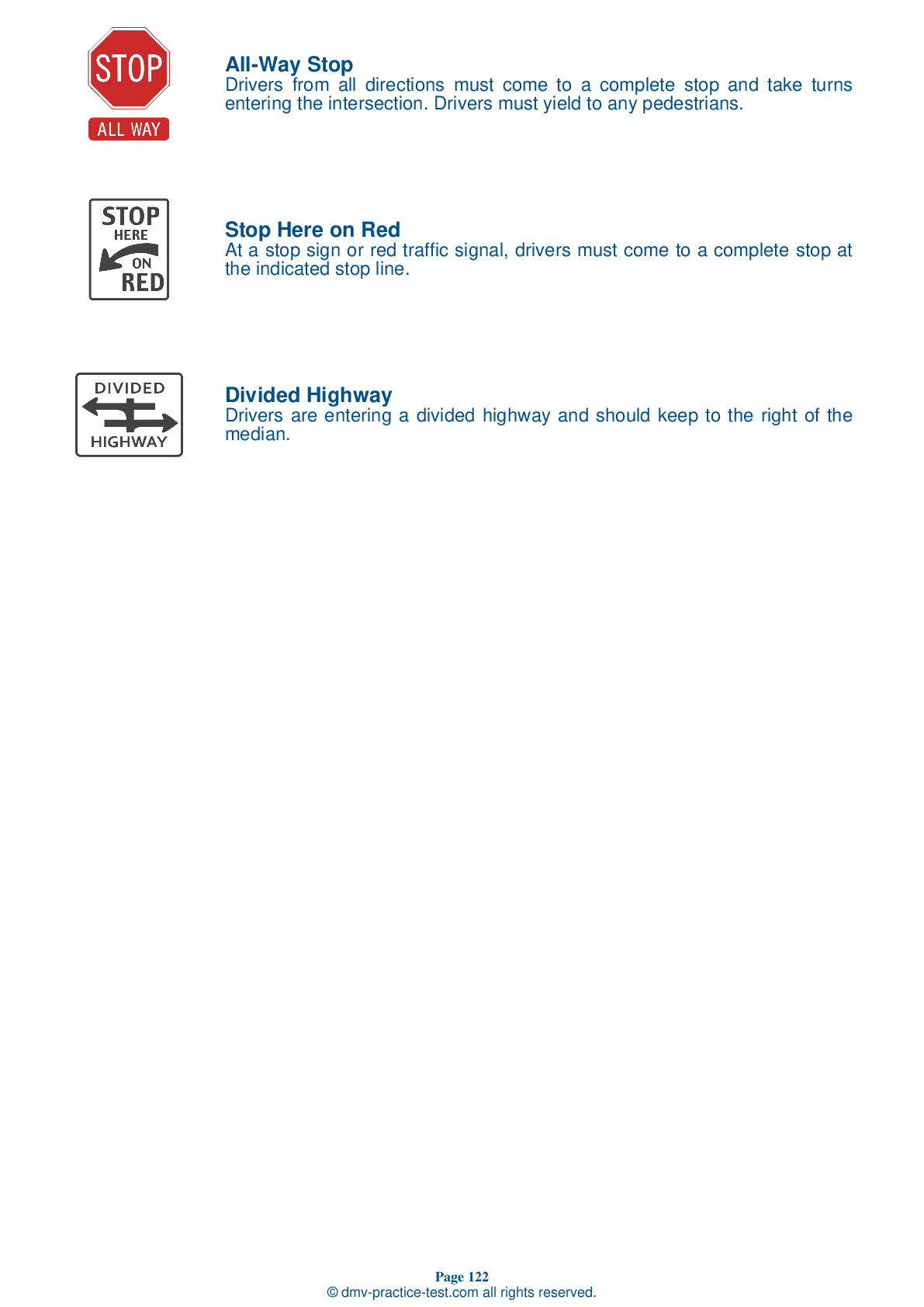Hazmat Test | Alabama 2025 #2
On our website, we provide FREE practice - CDL hazmat test online! The official exam test consists of several obligatory parts, with all of them checking your knowledge of different blocks of road rules. If you need to obtain a AL CDL hazmat endorsement in 2025, practice as much as possible. Free sample tests published on our website will help you check and improve your knowledge and boost your grades. Please bear in mind that Alabama requirements for issuing a hazmat endorsement for CDL may vary from those established in other states.
1 . If cargo containing hazardous materials is leaking but the driver does not have access to a phone, they should:
If a cargo of hazardous materials begins to leak, do not move your vehicle any more than safety requires. If you continue to drive, an even larger area will become contaminated. Instead, you should park your vehicle, secure it, stay with the vehicle, and contact the proper emergency personnel. If you do not have access to a phone, you should send someone else to get help.
2 . A placard indicating hazardous materials is shaped like a:
Hazardous materials warning placards are diamond-shaped.
3 . The person loading a tank with hazardous materials must be all of the following, except:
The person in charge of loading or unloading a hazardous materials cargo tank must ensure that a qualified person is always supervising the process. The supervisor must be alert; have a clear view of the tank; be within 25 feet of the tank; know the hazards of the involved materials; know the procedures to follow in the case of an emergency; and be authorized to and capable of moving the tank.
4 . A person supervising the loading of a tank:
The loading and unloading of a tank must be watched by a qualified person. They must be alert; have a clear view of the tank; stay within 25 feet of the tank; know the hazards of the materials involved; know the procedures to follow in an emergency; and be authorized and able to move the tank if necessary.
5 . A material’s hazard class reflects:
A hazardous material will be placed into one of nine classes to explain the type of risks associated with the material.
6 . A driver should ensure that:
It is always a good idea to compare package markings and labels to accompanying shipping papers. Always make sure the shipper has displayed the correct basic description on the shipping paper and has provided the proper labels on the packages.
See the exact questions that will be on the 2025 Alabama DMV exam.
99.2% of people who use the cheat sheet pass the FIRST TIME
Lillian MCcranie explains how our CDL study guide was helpful in passing the exam and recommends it to everyone.
Cameron tells us how he purchased the CDL exam, and found it to be a useful tool which helped him pass the exam and find a job.



